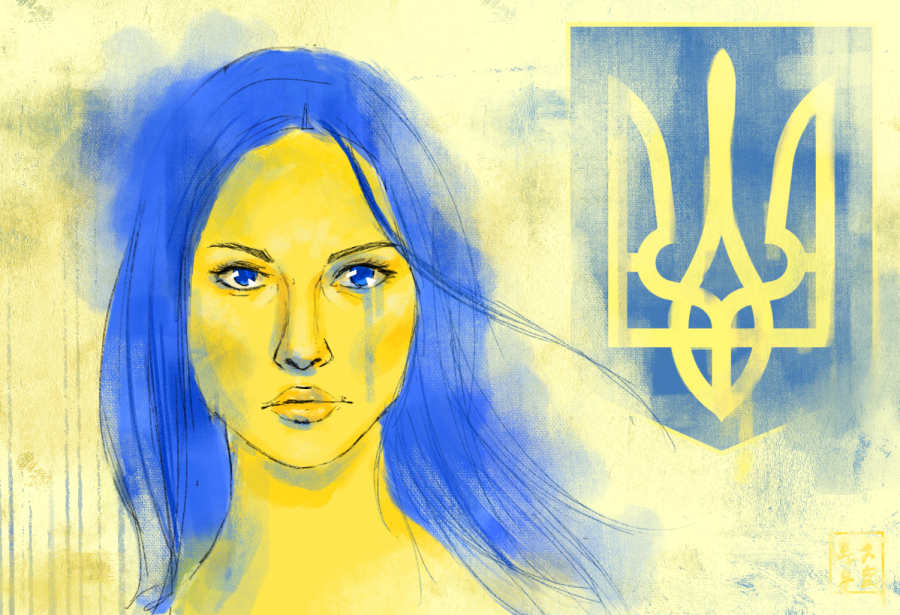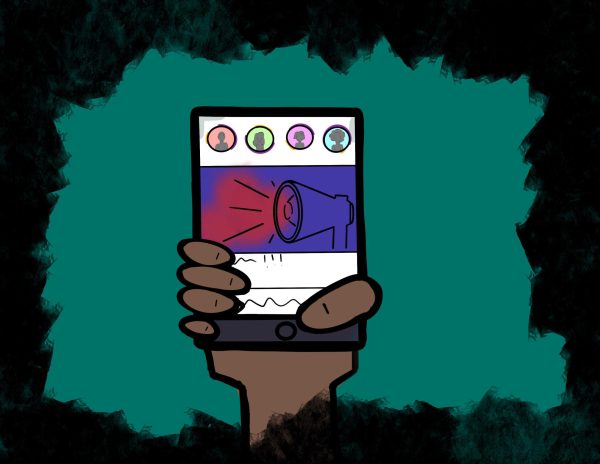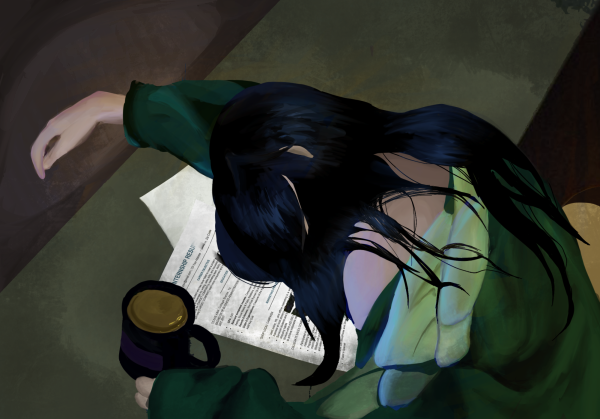Let’s Talk About Ukraine
A representation of the suffering of Ukrainian citizens.
On Thursday, February 24, at 4:50 a.m Eastern European Standard Time, Russian president Vladimir Putin appeared before his nation, announcing a “special military operation” against Ukraine in order to “protect people who have been subjected to abuse and genocide by the Kyiv reime for 8 years.” In his speech, Putin denied having plans for occupation. “We are not going to impose anything on anyone by force.”
Exactly 17 minutes later, the first missiles struck. Millions of citizens around Eastern and Central Ukraine woke up before dawn to the sound of explosions and air raid sirens.
Russia’s invasion didn’t come as a surprise – at least, not exactly. Russia has been making threats towards Ukraine’s sovereignty since the fall of the Soviet Union, most notably in 2014 where Russia seized the Crimean Peninsula. On Monday, February 21, Putin stated plainly his stance on Ukraine’s sovereignty. “So, I will start with the fact that modern Ukraine was entirely created by Russia or, to be more precise, by Bolshevik, Communist Russia… It should be noted that Ukraine actually never had stable traditions of real statehood.”
But the bombs dropping down on the country’s capital, and the tanks rolling in from Russia make Putin’s long-term fantasy a reality. All at the dispense of the Ukrainian citizens.
And the fact that Russia’s threats against Ukraine’s sovereignty are not new does nothing to comfort the Ukrainian people – those that are currently living in the war zone, or those who are forced to watch from afar.
And, while they watch their country be invaded on three fronts, Ukrainian American students must continue their academic life as though nothing is out of the ordinary. Which, for some reason, includes hearing their peers crack insensitive jokes about the fate of their home country.
These jokes ultimately diminish the situation into nothing more than comedic fodder. The people who are making these jokes – slights about the price of gas (to the citizens of Ukraine, gas is the least of their worries), jokes about the American draft, calling Putin “daddy” – aren’t using these as ways to “cope.” The people who are comfortable making these jokes are in a position in which they are completely detached from the situation. And call me sensitive, but I don’t find it appropriate making jokes about something that has caused (and continues to cause) the deaths of innocent civilians.
The conversations about Ukraine (and other recent events) need to change too.
In my 4 years at Campolindo, I have had 1 class that has taken the time to address current events. That was this year, my senior year, during AP Comparative Government. And the conversation itself left a lot to be desired. Students were making offensive comments about the state of Ukraine, with little to no intervention. Calling Ukraine a “country full of Nazis” isn’t that helpful of a contribution.
It’s understandable that students and staff members aren’t entirely connected to these discussions: not many are Ukrainian, and not many are personally affected by the current situation. But the conversation surrounding the topic needs to be reworked. Ignorance is not an excuse to be insensitive.
What we need to focus on is the lives currently at stake and the lives that we have lost. According to the UN’s Office of the High Commissioner for Human Rights (OHCHR), there has been a recorded 549 civilian deaths and 957 injuries since the initial invasion. The actual figure could be much higher, and it continues to rise even now.
Schools, hospitals, and kindergartens have been targeted in Russia’s ballistic attack upon Ukraine. On March 3, 47 civilians were killed when airstrikes hit 2 schools and an apartment complex in Chernihiv. On March 9, at least 17 civilians were injured after an airstrike hit a hospital in Mariupol.
The Ukrainian civilians – those who are fleeing and those who can’t – are suffering. And while there’s not much we as American students and faculty members can do, centering those civilians in our discussions about the situation is one of the easiest ways we can help.
If you want to visibly show your support for the Ukrainian people, you can wear or plant a sunflower. As Ukraine’s national flower, the sunflower has historically been used by the Ukrainian government and people alike as a symbol of resistance. And now, we can use the sunflower as a symbol of solidarity.
As the Ukrainian people fight to defend their home from the threat of war, it is time that we begin to look inward and ask ourselves: what can we do to help?
“It is a victory when the weapons fall silent and the people speak up.” – Volodymyr Zelensky, President of Ukraine.
Your donation will support the student journalists of Campolindo High School's The Claw. Your contribution will allow us to produce more issues and cover our annual website hosting costs.

Senior V Rogers has had a passion for literature since they were young: “My bedtime stories were Baldwin and Angela Davis.” They have taken AP language...

Sophomore Grace Franklin has an interest in art and improving her digital art skills through The Claw Art Staff. Franklin has a deep interest in video...


